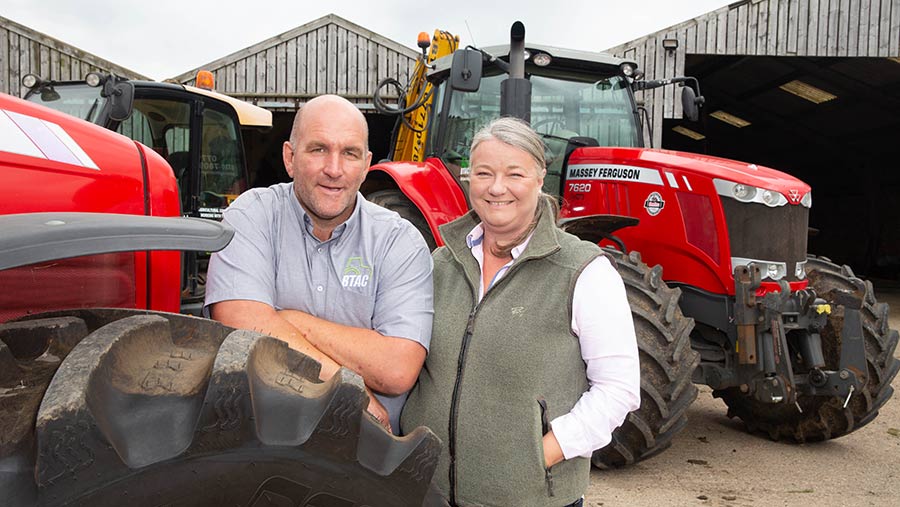How contractors achieved substantial year-on-year growth
 © Tim Scrivener
© Tim Scrivener Brian Thompson and Rachel Timms operate BTAC Groundworks and Agricultural, undertaking jobs from site clearance and digging foundations to hedging and fencing throughout Leicestershire and Rutland.
Since establishing the business in 2014 they doubled turnover twice in the first two years and have seen annual growth since by following a carefully planned strategy that plays to both their strengths.
See also: So you want to…get into contracting?
Unlike many start-up contracting businesses, theirs did not grow from an existing farm business that they or their family members owned.
Brian has worked on farms and in the construction sector, while Rachel has a business degree and previously worked as a project manager in the NHS.
Starting the business
A long-term desire to run their own business saw them first embark on a detailed analysis of their local area to identify what gaps were not being filled by existing contractors.
They then spoke extensively to potential suppliers, such as machinery dealers, to pull together what they would have to charge customers in order to pay costs and leave a margin.
Once they were satisfied they could turn a profit on paper, they employed a local business advisor who specialised in start-ups to double-check them and also took advice from an accountant.
Faced with the prospect of abandoning their monthly salaries, and with a young daughter to take care of, only then were they satisfied that they were ready to take on bank loans and machinery finance deals and strike out alone.
The results are a clear justification of their detailed planning.
Importance of accountant
Their projections were soon realised as they built up a variety of work ranging from big contracts with the public sector and large companies to smaller jobs with farms and individuals.
They said the time they spent with professionals – business advisors, accountants and bankers – ahead of start-up was vital.
“I would say the accountant has been the most important relationship, not the bank,” says Rachel, advising that potential firms should be analysed to see if they specialise in the sector and size of firm you are looking to establish.
Finding the right firm and individual will not just give new firms the maximum help with tax planning.
If they are working with similar businesses they can also give a huge amount of advice about the credibility of assumptions and what pitfalls to avoid, as well as advise on sources of funding beyond traditional bank loans.
Best of all, they can tell you if you are doing well, says Rachel, which can give a huge amount of confidence when contemplating big decisions.
Managing expansion
Once a business is established and opportunities are increasing, the two biggest issues to manage will be staff and cashflow, say Brian and Rachel.
Invoices should be issued promptly and payment terms clearly marked, they say, and consideration should be given to getting some money up front from new clients, particularly on larger jobs.
Finding the right staff and managing them well can be challenging for new business owners with no experience in the area.
They advise getting training on how to communicate well, set goals and manage employee safety.
Now with up to seven staff working for them, they use a human resources consultant to help with any difficulties, as well as a health and safety adviser.
While the primary objective of this is of course to keep employees as safe as possible, they advise large, attractive corporate contracts will only be available to those who are prepared to show a strong paper trail in this area.
